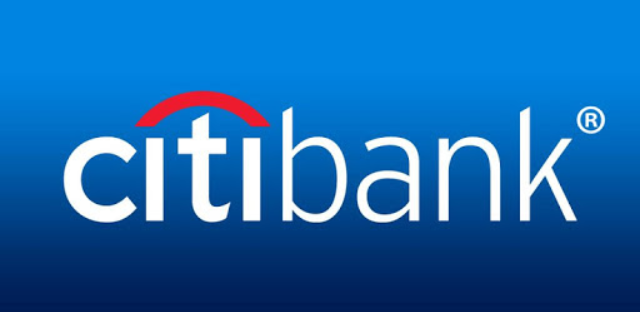
Key Things to Teach Your Kids About Loans and Debt Management
It’s a real world your kids are going to face one day. Income, savings, outcome, and sometimes, debt are four financial topics that you need to teach your kids from a very early age to help them be fully financially educated. Though there are some best personal loans with low interest rates that will help you or your child later on, bad debt management could lead your kids to getting stuck in a debt cycle.
As urgent as it sounds, unfortunately, a report showed that many people are financially illiterate, making them often make bad debt management decisions. So it is your responsibility as a parent to teach them the basics of loan and debt management, so they can save themselves from falling into any type of financial trap. Here are some key things to help teach your kids about loans and debt management.
The Basics of How Money Works
Before jumping out to lending and debt management, let’s bring your kids to the world of money, in general. Teach them the basics of how money works, why it is important, and what we can do with it. Show your kids examples of spending and saving, so they can gain a better understanding about income, savings, outcome, and debt management. On top of that, try to explain why it is important for them to manage their money carefully.
The Need for Loans
Learning at the right moment your kids should or should not borrow a loan is important for them. A good lesson for your kids about loans should be to make sure they fully understand the need for loans and why taking it is necessary. Let them know that borrowing money from the bank can help them reach their dreams in life and let them learn what types of loans are available out there. In fact, when it comes to college tuition, they can consider taking student loans with low interest rates.

The Good Debt and Bad Debt
It’s all about mindset. Debt is not necessarily bad if you use them correctly and properly. Teach your kids that there are two types of debt, good and bad. Good debts are those that can help them build their net worth over time, such as student loans or mortgage loans to buy a house. Bad debts only bring short-term gain, such as payday loans or credit cards with high-interest rates. Still, make sure they know how to find a reliable lender they can trust.
Debt Repayment and Management
Last but not least, teach your kids about debt repayment and management. Show them the practical example of what to do when they are in debt and how to manage it properly. Ensure they understand the importance of understanding the terms of a loan before signing for it, as well as showing how much extra money they can save in an unexpected financial situation. Sometimes, all we need to do to avoid getting stuck in a debt cycle is learn how to manage our money wisely.
So what’s the bottom line? Teaching your kids about loan and debt management is, without a doubt, essential as a parent. With a proper understanding of the basics of money, the need of loans, good and bad debt, as well as debt repayment and management, your kids will grow to be more financially responsible adults. Therefore, be sure to guide them with the right information, so they can make smart financial decisions in their future.…

What Happens If You Can’t Pay Off Your Student Loan
Most of us have been there, struggling not only to complete our college education but also to pay off our student loans after graduating. We all know that student loans can be a huge burden, but what happens if you can’t pay them off? Unfortunately, if you default on your student loans, the consequences can be severe. You could end up losing your tax refunds, having your wages garnished, or even damaging your credit score. Even the most aggressive credit repair company can’t help you out. So it’s important to understand what could happen if you can’t make your loan payments and learn the options you have to deal with it. Read on to find out.
Wage Garnishment
Wage garnishment is one of the most serious consequences of defaulting on your student loan. Under this process, a court order can be issued to withhold up to 15% of your disposable income for the payment of your loan. This means that the money will automatically be taken out from your salary or wages and sent directly to your lender, leaving you with less money for other expenses. On top of that, it could also take a toll on your credit score, making it difficult for you to qualify for other loans or secure credit in the future.
Tax Refund Seizure
Another consequence of not repaying your student loan is that the government can take away your tax refund, which can be equal to or even more than the total owed amount. This means you won’t receive any refunds from the IRS until the entire loan has been paid off. This can be a serious setback, especially if you were counting on that refund money to pay off other bills or invest in something else. Without the refund, you won’t have the necessary funds to do what you planned and could end up with more debt.
Social Security Garnishment

If you are receiving Social Security benefits, the government could also garnish those to pay off your student loan. It is important to note that there are some limits on this garnishment, and it can only be up to 15 percent of your total benefits. While this may not seem like much, it can still significantly impact your finances. Not only will it leave you with less money to pay for necessary expenses, but it could also cause a decrease in the amount of Social Security benefits you receive each month.
Credit Score Damage
Finally, defaulting on your student loan can also damage your credit score. This information will be reported to the three major credit bureaus and could stay on your record for up to seven years, significantly lowering your ability to qualify for other loans or secure any credit in the future. A low credit score can have serious implications, and it’s often difficult to repair the damage done. In fact, even the most aggressive credit repair companies won’t be able to help you fix your score.
Now you know it. The consequences of not paying off your student loan can be severe, but options are still available. First, you have the option of Public Service Loan Forgiveness. This program allows those who work in public service and make 120 qualifying payments to have their student loan debt forgiven. You might also be able to negotiate a payment plan with your lender, which can help you get back on track with your loan payments. Stay tuned for more tips on how to get rid of your student loans.…

Ultimate Guide to Emergency Loan
When life throws you a curveball, it’s nice to know that there are options. Emergency loans can provide the money you need to cover an unexpected expense until your next paycheck or payday. This article will discuss what emergency loans are and how they work. We’ll also talk about things you should consider before taking out a loan and advise how to avoid becoming overwhelmed by debt!
What Is Emergency Loan?
 Emergency loans are short-term loans that can provide you with the money you need to take care of an unexpected expense. The loan amount typically ranges from $100 to $500, but it may be higher depending on your needs. Emergency loans are designed to help people cover expenses until their next paycheck or payday.
Emergency loans are short-term loans that can provide you with the money you need to take care of an unexpected expense. The loan amount typically ranges from $100 to $500, but it may be higher depending on your needs. Emergency loans are designed to help people cover expenses until their next paycheck or payday.
Emergency loans are typically used for one-time expenses, such as car repairs or medical bills. You can use emergency cash to cover unexpected costs that may arise when you do not have enough money in your checking account.
How Do Emergency Loans Work?
Emergency loans are typically repaid in a lump sum on the borrower’s next payday. The loan amount plus interest and fees are due in full on the date of your next payday. Some lenders may allow you to repay the loan over a more extended time, but this will likely increase the interest you pay on loan.
The borrower is responsible for ensuring they have enough money in their checking account to cover the loan repayment amount when payday comes around. If there isn’t enough money in your bank account, lenders won’t release your funds until they receive payment. So you must plan and make sure you have enough money to cover the loan repayment.
What Are the Pros and Cons of Emergency Loans?
 Emergency loans are outstanding for people who don’t have access to credit or savings to use in case of an emergency. They provide a quick and easy way to borrow small amounts of cash until your next paycheck comes around. Unlike traditional loans, emergency loans don’t require a credit check. So if you have bad credit or no credit at all, you can still qualify for a loan.
Emergency loans are outstanding for people who don’t have access to credit or savings to use in case of an emergency. They provide a quick and easy way to borrow small amounts of cash until your next paycheck comes around. Unlike traditional loans, emergency loans don’t require a credit check. So if you have bad credit or no credit at all, you can still qualify for a loan.
However, there are some drawbacks to consider before taking out an emergency loan. First off, the interest rates and fees associated with these loans can be high. If you don’t repay the loan according to the terms of your contract, you could incur additional costs. Moreover, emergency loans can negatively impact your credit score if they are not repaid on time.
What Are Some Ways to Avoid Getting Overwhelmed by Debt?
Emergency cash advances should be used as a short-term solution for unexpected expenses until payday comes around; they should not be used as a way to get out of debt. If you’re struggling with debt, there are some things you can do to avoid getting overwhelmed, such as creating a budget and sticking to it, and considering enrolling in a debt management program.…

The Benefits of Payday Loans
Do you need a little extra cash? When you are in a pinch, there is nothing worse than not making ends meet. If this has happened to you and you don’t have any other options, payday loans may be the answer. However, it is important that you find best lenders for payday loans. This can make things easier for you. Below are the benefits of payday loans.
Quick and Easy
One of the best things about payday loans is that they are quick and easy to get. You don’t have to go through a long process or fill out a lot of paperwork. In most cases, you can get your money in just a few hours. This is why many people choose to get payday loans when they need cash for an emergency.
No Collateral Required
Another advantage is that you don’t have to put up any collateral in order to qualify, like with a traditional bank loan. You won’t be required to give the lender anything except your signature on the contract and proof of income. This can make getting a payday loan much easier than getting a traditional loan. Many people often have a problem with the collateral required.
Flexible Terms
 The terms of a payday loan are also very flexible. You don’t have to worry about being stuck in a long-term contract that you can’t afford. The loans are designed to be short-term, so you will only have to pay back what you borrow without any additional fees.
The terms of a payday loan are also very flexible. You don’t have to worry about being stuck in a long-term contract that you can’t afford. The loans are designed to be short-term, so you will only have to pay back what you borrow without any additional fees.
Many people appreciate this flexibility because it allows them to borrow money without feeling like they are getting into too much debt. So, if you find yourself in a financial bind and don’t have any other options, a payday loan may be the best solution for you.
Stress-Free
Taking out a loan can be stressful, but you don’t have to worry about that with payday loans. The entire process is very straightforward, and there are no hidden fees or surprises. You will know exactly what you need to do in order to get your loan and how much it will cost you. This can help reduce the amount of stress you feel during a difficult time.
Automatic Transactions
 One of the best things about payday loans is that the payments are automatically deducted from your bank account. This means that you will never have to worry about missing a payment or being late. You can also rest assured knowing that the money will be taken out on time every month so you won’t have to worry about it at all. This makes things a lot easier for you.
One of the best things about payday loans is that the payments are automatically deducted from your bank account. This means that you will never have to worry about missing a payment or being late. You can also rest assured knowing that the money will be taken out on time every month so you won’t have to worry about it at all. This makes things a lot easier for you.
When you need money in a hurry, few options to help. Payday loans provide short-term cash when other sources aren’t available and can be the perfect solution for those who traditional banks have turned down. Consider contacting your local payday lender today if you’re looking for fast cash to get through a rough patch.…

Tips for Choosing a Business Loan
A brilliant business idea is not the only requirement towards building an empire, financing matters too. However, the benefit of having a great business idea is that you can always get financiers because your business has a higher chance of succeeding. You, therefore, do not have to wait to gather enough capital before starting your journey towards success because you can get a Yrityslainaa on favorable terms. And the favorable loan terms give your business the capacity to expand fast. Here are some of the tips you can apply in search of a business loan:
Consider the Amount of Loan
 Starting a business can be daunting and you may not have a clear idea of what you need to specialize at. You need to have a clear plan for the foreseeable future of your business to avoid going out of the plan which will put a strain on the limited resources. Determining the total cost needed to run the business and the available funds you have can help you to calculate the loan needed to fund the deficit before the business reaches the breakeven point. The borrowed amount should only be spent on income-generating activities.
Starting a business can be daunting and you may not have a clear idea of what you need to specialize at. You need to have a clear plan for the foreseeable future of your business to avoid going out of the plan which will put a strain on the limited resources. Determining the total cost needed to run the business and the available funds you have can help you to calculate the loan needed to fund the deficit before the business reaches the breakeven point. The borrowed amount should only be spent on income-generating activities.
Consider the Interest Rate
 Although you will have already known the interest rate at which you get the loan, it would help to read through the loan papers to see how they are computing it. You need to also consider the total amount you will pay, and consider if you could take a shorter period loan to reduce the total interest amount payable.
Although you will have already known the interest rate at which you get the loan, it would help to read through the loan papers to see how they are computing it. You need to also consider the total amount you will pay, and consider if you could take a shorter period loan to reduce the total interest amount payable.
Evaluate Your Lending Options
It is advisable to evaluate the available options you can borrow from and only go for those with favorable terms. You can start by looking for lenders who do not require collateral and guarantors if you need a loan that can be repaid over a short period, or you can go for the traditional financial institutions.
It is essential to know that you may not find extremely good credit terms because the repayment period, interests charged, and up-front fees will always vary from one offer to the other across different lenders. You will need to determine the opportunity cost of the different elements in the different offers and chose the one that favors your business situation.
As you look for a loan, shopping around for different lenders can help you to get a loan that will work best with your business condition to ensure that you are not pressured during the repayment period. It is also wise to ensure that the borrowed funds are invested in areas that will generate returns that can take care of the repayment.
…







